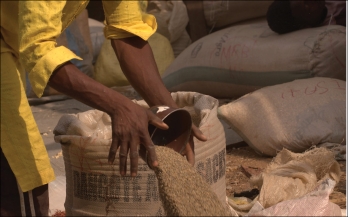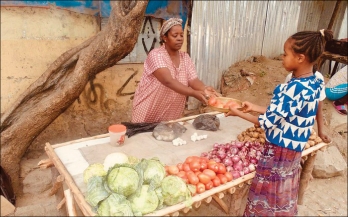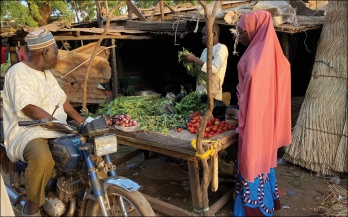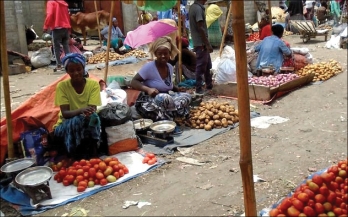The scope of this review focused on traditional markets, which provide millions of people with nutrient-rich commodities like animal-source foods and fresh produce. However, these same foods are the leading cause of foodborne disease globally. The research, based on insights from 11 literature reviews, revealed that there is a strong connection between food safety, nutrition, and health. To address these issues, a food systems approach is required.
In this paper, EatSafe examines the process of “making a market” through a case study of vendors and consumers, using in-depth interviews, in Birnin Kebbi, Nigeria. Results demonstrate that market transactions are influenced by a complex interaction of vendors’ norms on competition and collaboration, consumers’ needs for credit amid unpredictable prices and restrictive gender norms, and a “moral economy” that appears to guide market actors’ behavior.
To increase consumer demand for improved food safety, EatSafe is testing three interventions that seek to change consumers and vendor behaviors in a traditional food market in Hawassa, Ethiopia.
EatSafe interviewed producers, processors, transporters, storage providers, and wholesalers of six food commodities to understand perceptions and actions related to food safety hazards across Nigerian food supply chains.
EatSafe collected samples of seven nutritious commodities to assess the relative exposure and risk of foodborne illness from consuming products commonly sold in traditional food markets in northwestern Nigeria.
The EatSafe program conducted a range of formative research activities to understand the local context in Hawassa, Ethiopia. Learnings from these activities were then used to develop market-based interventions to increase consumer demand for improved food safety.
EatSafe conducted a focused ethnographic study to examine perceptions, knowledge, and experience related to food safety among consumers and traditional food market vendors Hawassa, Ethiopia.
This GAIN working paper describes the process used by EatSafe in Nigeria to identify and design innovative interventions to improve the safety of nutritious foods in traditional food markets.
To understand knowledge, attitudes, and practices related to food safety behaviors, EatSafe surveyed 300 consumers and vendors in Hawassa, Ethiopia, as well as structured observations of vendor behaviors.
EatSafe conducted three data collection activities, including interviews, observations, and a randomized experiment, to understand consumers’ and vendors’ food safety knowledge, attitudes, and practices in Hawassa, Ethiopia.










